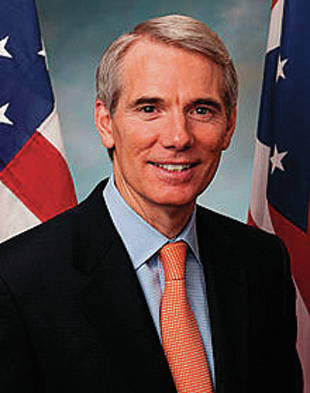
The American people have experienced yet another government shutdown, and the results were what they always are: financial hardship for federal employees who were furloughed or forced to work without pay and for small businesses that couldn’t get paid for government work they were doing, and the curtailing of taxpayer services like food inspections and IRS helplines.
I think about the TSA officer in Cincinnati who told me he was losing sleep about potentially missing a mortgage payment for the first time in his life. Or the new butcher shop and deli I visited in a low-income neighborhood of Cleveland — with a mission of providing fresh, healthy food — that couldn’t get the required federal permission to accept food stamps. Or federal prosecutors in Ohio telling me the shutdown undermined their ability to fight the opioid crisis.
It doesn’t have to be this way.
In addition to the heartbreaking impact on federal employees and their families, shutdowns also have a real impact on our economy. The White House Council of Economic Advisors recently estimated that the partial shutdown would subtract 0.13 percent from the quarterly Gross Domestic Product (GDP) for every week the shutdown continued. This translates to a deadweight loss from the US GDP of more than $26 billion over the course of the shutdown.
The lower economic growth as a result of the shutdown and disruptions for federal employees will ultimately cost taxpayers more than if Congress had passed our regular appropriations bills on time. While federal workers will receive back pay, there is significant lost productivity and 35 days of delayed federal services and contracts. So taxpayers lose, too.
Too often, we talk about trying to fix the problem while the shutdown is going on, but after it is over, we forget some of the pain, dislocation and inefficiency of it.
Let’s try something different this time. Let’s end shutdowns for good.
In every term since I was first elected to the Senate in 2010, I have introduced the End Government Shutdowns Act, which would permanently prevent government shutdowns from happening. Usually, support for the bill has been bipartisan. This year we already have 24 co-sponsors, but we need more. If it were the law of the land today, we wouldn’t have experienced this painful, 35-day shutdown.
The bill would continue funding from the previous year for any appropriations bill not completed on time or, as in the case now, any continuing resolution that expires. After the first 120 days, funding would be reduced by one percent, and by one percent again every 90 days thereafter, until Congress does its job and completes the annual appropriations process.
Both parties have spending priorities, and the reason small, across-the-board budget cuts are necessary after 120 days is to provide lawmakers the incentive to make the important budget choices that Congress must make to avoid having perpetual continuing resolutions. When agencies must operate under continuing resolutions for long periods of time, it sidelines their ability to modernize and plan for the long-term.
The End Government Shutdowns Act would provide lawmakers with more time to reach a responsible resolution to budget negotiations, giving federal workers and their families more stability, and ensuring we avoid disruptions that ultimately hurt our economy, taxpayers and working families.
Now is the time to get this done. Let’s not let this moment pass without preventing government shutdowns once and for all. As members of both parties work together to forge a bipartisan funding agreement over the next few weeks, I hope we can include this legislation in the final bill.
Once again, we have learned that government shutdowns don’t work for anyone. For the sake of federal employees and their families, taxpayers, our economy, and country, let’s end them for good.
Rob Portman (R-Ohio) represents the state in the U.S. Senate.


